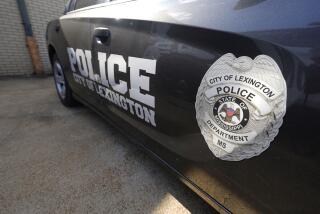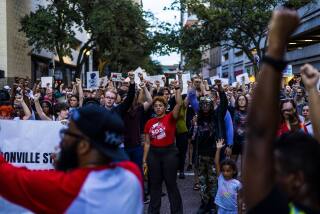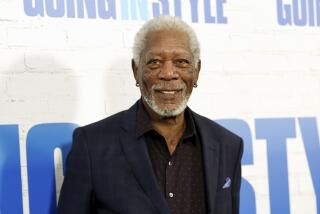Racism Not Rising, Meese Aide Contends
- Share via
WASHINGTON — The government’s chief civil rights enforcer said Friday that racism is not on the rise in America, contending that all available data indicates it is not, despite recent well-publicized incidents in Howard Beach, N.Y., and Forsyth County, Ga.
Assistant Atty. Gen. William Bradford Reynolds apparently made his remarks in response to a charge by Sen. Edward M. Kennedy (D-Mass.), who said earlier in the week that the Reagan Administration is creating a climate that encourages discrimination. Reynolds contended that the New York and Georgia incidents were isolated examples of a lingering racial cancer that must be removed before it spreads.
People in Robes
America always has had areas more disposed to racial tensions and violence than others, Reynolds told an Orlando, Fla., bar association conference on equal opportunity. Likewise, he added, there “long have been individuals amongst us who dress up in robes or other foolish costumes, preach hate and prejudice and engage in violent acts.”
“But the geographic areas where such behavior is commonplace are far fewer now than ever before in our history,” Reynolds said, “and the size and strength of such hate groups as the klan, the Aryan Nations, and the like, are much smaller and weaker.”
Reynolds attributed the improvement largely to “civil rights law enforcement efforts of the last 20 years, initially most visible at the federal level and later increasingly prominent at the state and local levels.”
Response to Kennedy
A Justice Department spokesman said that Reynolds’ remarks were aimed at Kennedy’s attack Wednesday on the Administration’s civil rights policies.
In a sharp clash on that day with Atty. Gen. Edwin Meese III at Senate Judiciary Committee hearings, Kennedy accused the Administration “of creating a climate that encourages discrimination or repudiates opportunity. Howard Beach and Forsyth County are happening on your watch, Mr. Meese . . . . What do you intend to do about them?”
Meese branded Kennedy’s comments as “a political diatribe” and said he considered himself “one of the foremost defenders of civil rights in the United States.”
In his speech Friday, Reynolds stressed that it is important “not to overstate the illness” in searching for the cure to such incidents as those that occurred in Forsyth County and Howard Beach, where a black man was killed by a car on a parkway when being chased by whites.
Police Attitude Cited
Reynolds, noting that he had gone to Forsyth County to demonstrate the Administration’s law enforcement commitment, said that Georgia’s state and local police agencies showed “a similar commitment” in protecting marchers there after participants in an earlier civil rights march had been attacked by stone- and bottle-throwing whites.
“Let us not forget that it was just a few decades ago that state and local law enforcement in much of the South was very much aligned on the other side of the racial issue,” he said. The change stands as “a powerful testament to how far we have come in the civil rights struggle.”
More to Read
Sign up for Essential California
The most important California stories and recommendations in your inbox every morning.
You may occasionally receive promotional content from the Los Angeles Times.













